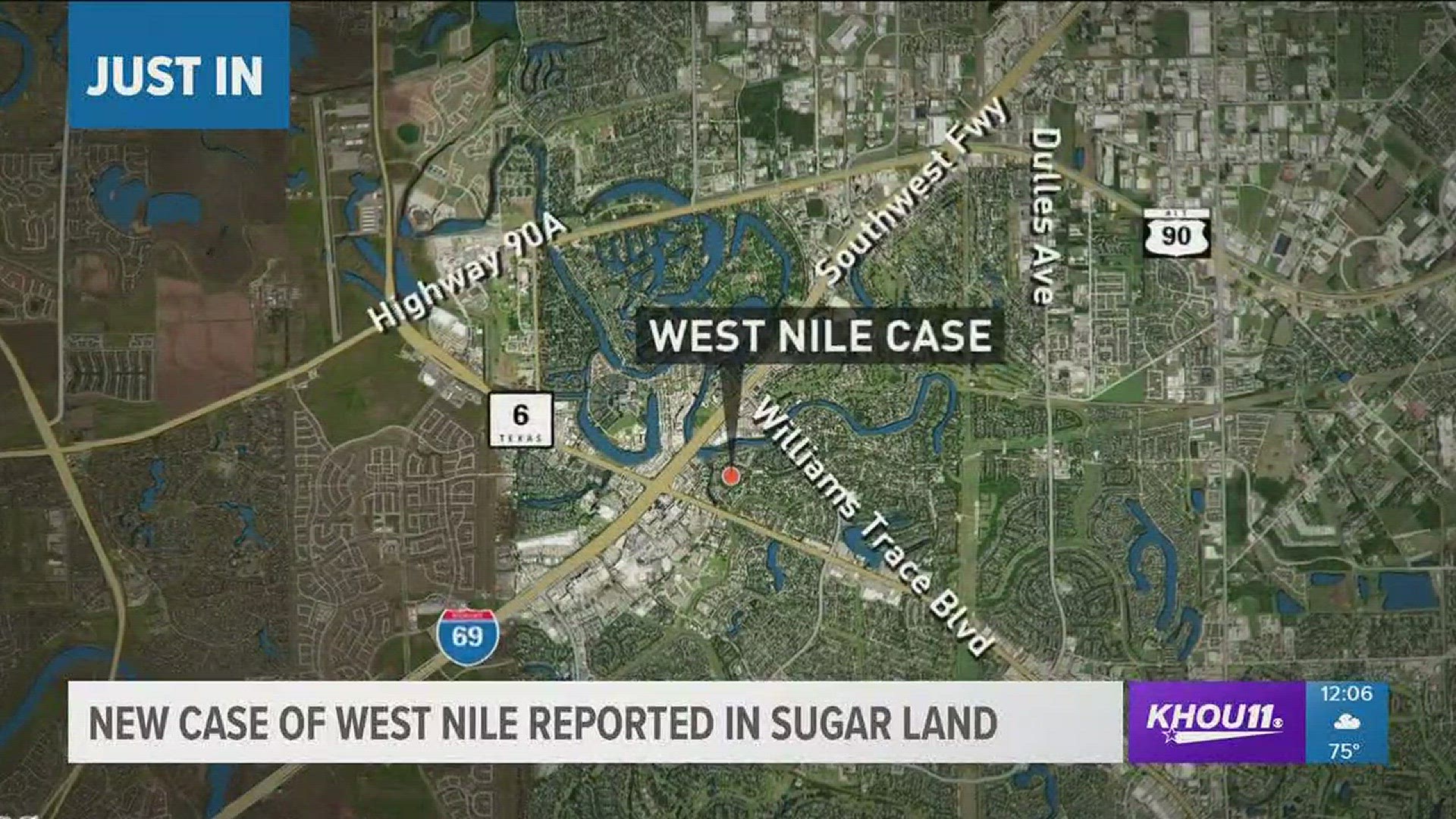SUGAR LAND, Texas – A person, who lives in Sugar Land recently tested positive for West Nile Virus at a local hospital, according to the Fort Bend County Health and Human Services Department.
Dr. Joe Anzaldua, who serves as the city's medical director and health authority, was notified by county health officials, but due to HIPAA considerations, additional details are not available, including where the adult was exposed to West Nile.
As a precautionary measure, the city will increase mosquito spraying to twice per week citywide and will continue working closely with the Texas Department of State Health Services to trap and test mosquitos for the presence of the West Nile virus. The traps supplement the city's larvicide and mosquito spraying operations.
No mosquitos have tested positive for West Nile virus since the week of Aug. 10.
Humans can contract West Nile virus from a mosquito bite. Infected mosquitoes get the virus from feeding on infected birds. The virus can cause serious illness or death.
Anzaldua urges residents to take precautions to reduce West Nile exposure.
"Residents should use insect repellent whenever they are outdoors and avoid going outside at dusk and dawn," said Anzaldua. "People over 50 years old and those with compromised immune systems are at a higher risk of becoming seriously ill if infected with the virus. If people have symptoms that cause them concern, they should contact their healthcare provider immediately."
There are no medications to treat or vaccines to prevent West Nile virus infection.
Symptoms may include a stiff neck, vision problems, body tremors, mental confusion, memory loss and seizures.
The milder form of the illness is West Nile fever. Symptoms may include fever, headache, muscle and bone aches, nausea and drowsiness.
People with the milder form of the illness typically recover on their own, although symptoms may last for several weeks. Up to 80 percent of people infected with West Nile virus will have no symptoms and will recover on their own.
Anyone with questions or concerns should contact their doctor.
The Texas Department of State Health Services recommends practicing the "Four Ds" as precautionary measures:
. Use insect repellent containing DEET, picaridin or oil of lemon eucalyptus.
. Dress in long sleeves and long pants when you are outside.
. Stay indoors at dusk and dawn when mosquitoes are most active.
. Drain standing water where mosquitoes breed. Common breeding sites include old tires, flowerpots and clogged rain gutters.
It's also important for residents to eliminate standing water around their homes, an ideal breeding ground for mosquitoes. Learn more using the city's interactive tool.
For more information, click here.

